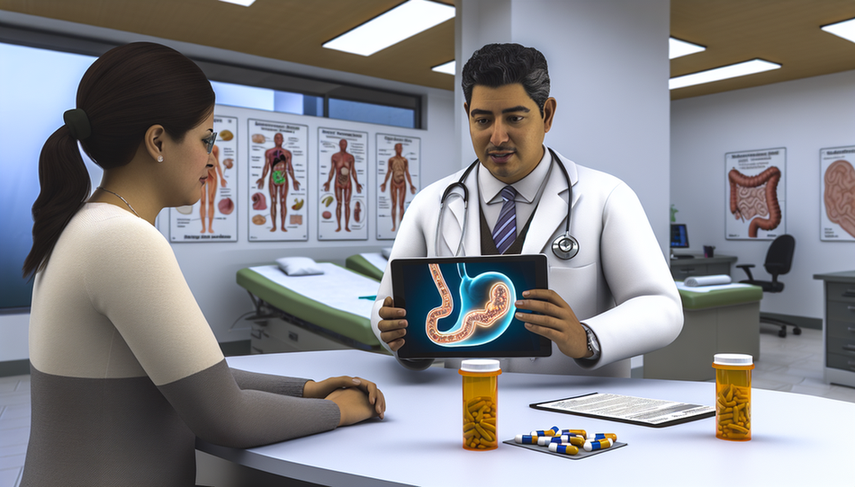Effective Gastritis Treatment: H. pylori Eradication and the Role of Proton Pump Inhibitors and a Bland Diet

Gastritis is an inflammation of the gastric mucosa that can be caused by various factors, with infection by Helicobacter pylori being one of the most common. This microorganism is a well-known pathogen for its ability to colonize the human stomach, leading to conditions ranging from chronic gastritis to peptic ulcers and gastric cancer. Therefore, H. pylori eradication is a crucial objective in gastritis treatment, not only to alleviate symptoms but also to prevent more severe complications.
The standard treatment for H. pylori eradication includes a combination of antibiotics and proton pump inhibitors (PPIs), which help reduce gastric acidity and enhance the effectiveness of antibiotics. However, the growing resistance to antibiotics has complicated this approach, making the search for alternatives, such as the use of probiotics, increasingly relevant [1]. Probiotics can not only improve eradication rates but also help mitigate the adverse effects of antibiotics on the intestinal microbiota [2].
In addition to H. pylori eradication, it is essential to implement measures for gastric protection. This includes the use of PPIs to reduce acid secretion and allow for the healing of the gastric mucosa. A bland diet is also recommended to avoid gastric irritants such as alcohol, coffee, and spicy foods. Supplementation with antioxidants, such as vitamin C, may offer additional benefits by enhancing gastric mucosal protection [3].
In conclusion, managing gastritis requires a comprehensive approach that combines H. pylori eradication with gastric protection strategies. Personalizing treatment, considering antibiotic resistance and individual patient characteristics, is essential for optimizing outcomes. Ongoing research into new therapies and understanding the interaction between H. pylori and gastric microbiota will continue to be key areas for improving the treatment of this prevalent condition [4].
Referencias
[1] Helicobacter pylori and oral-gut microbiome: clinical implications.
[2] Microbiota in the stomach and application of probiotics to gastroduodenal diseases.
[4] Eradication of Helicobacter pylori and Gastric Cancer: A Controversial Relationship.
Created 2/1/2025
